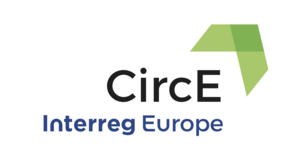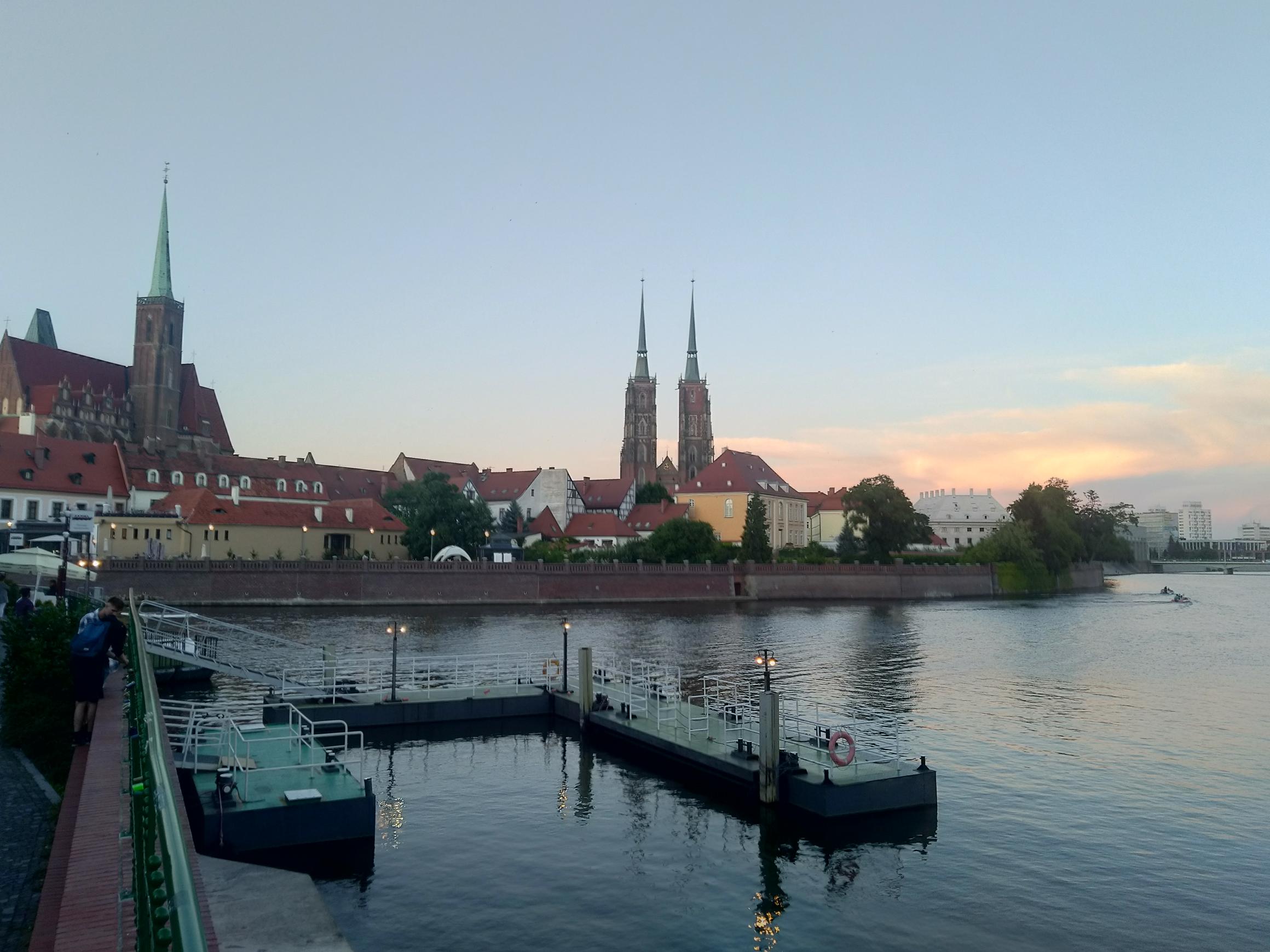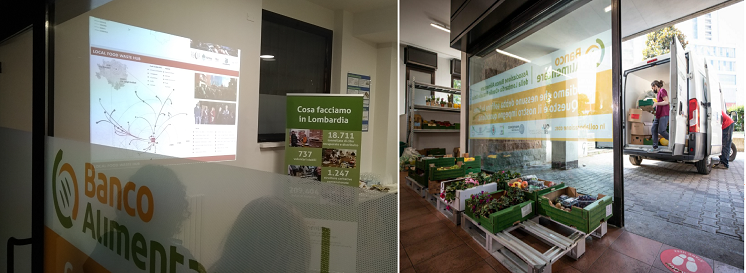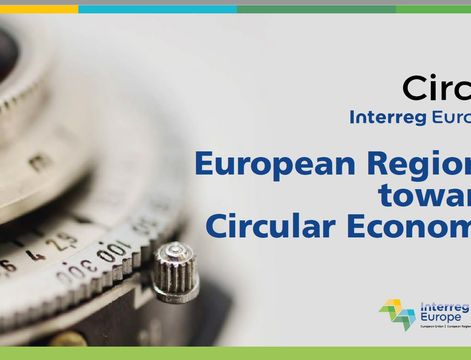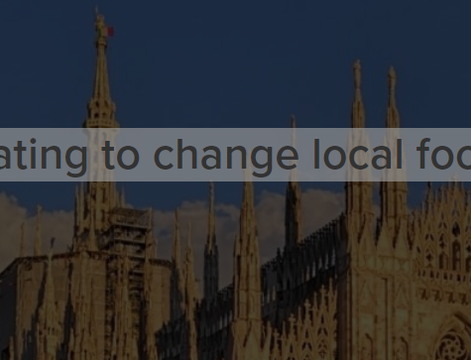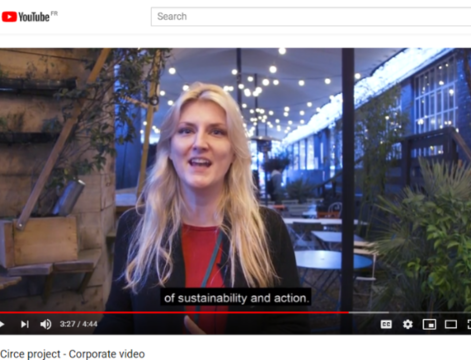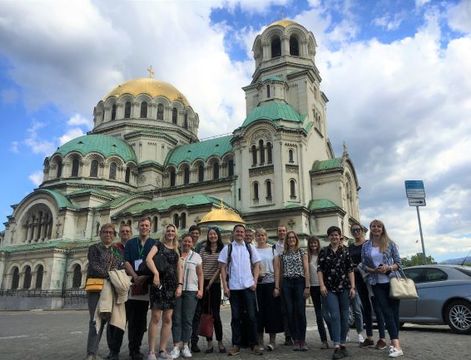On 27th and 28th November 2018, London played host to over 40 CircE project partners and their stakeholders for the London CircE project seminar. During the two days a total of over 80 stakeholders and experts met and exchanged their knowledge and experience.
The visit was organised by the London Waste and Recycling Board (LWARB). LWARB has expanded its remit from focusing on the end of life of products to looking at how to accelerate London’s transition to a circular economy.
To meet the needs of the CircE project programme and inspire project partners, the visit focused specifically on demonstrating some of the innovations happening in the built environment, and food sectors in London.

Day 1
The visit began with the CircE steering group meeting, followed by lunch which was provided by Tiny Leaf, a zero waste catering company. The group were then joined by stakeholders for an afternoon of knowledge sharing which included a welcome from Liz Goodwin, the Chair of the LWRB, followed by presentations from:
Doug Simpson, Principal Policy Officer, Greater London Authority
He provided an overview of the London environmental social and economic context.
Antony Buchan, Head of the Resource London team at LWARB described some of the work being undertaken to address the issues of recycling in flats, the Love not Landfill textiles campaign, and TRIFOCAL European food project.
Clare Ollerenshaw, who introduced the London Circular Economy Route Map and discussed some of the work being undertaken in the built environment in London including the use of meanwhile space for housing which is designed for deconstruction.
The afternoon session was closed by Dan Epstein from Useful Projects who described the work that LWARB, the GLA and Useful projects are undertaking with the building industry in London to create a new policy.
The delegates then visited the new LWARB offices. The delegates were taken on a tour of the office to illustrate how the recent fit-out was delivered incorporating circular economy principles including remanufactured furniture, reclaimed and circular flooring solutions, refurbished IT and other innovative circular products.
During the evening, delegates were joined by 30 London stakeholders from a variety of organisations for a networking session and presentations. This included several SMEs which have received free circular economy business support from LWARB’s Advance London team.
Presentations were given by:
Library of Things, Chip[s] Board, Alliance of Sustainable Building Products, The Restart Project and the UK Green Building Council.
The evening also featured a textiles discussion where stakeholders and partners met to discuss their latest thinking on opportunities to help the textiles sector transition to a circular economy.
Day 2
The second day began with a visit to Queen Elizabeth Olympic Park. Elliot Bushay, Sustainability Officer at the London Legacy Development Corporation led the tour, explaining how the buildings were designed in a flexible way to allow them to be used for other purposes after the Olympic games in 2012. The buildings also feature a myriad of reclaimed and recycled building materials.
The group then moved on to visit Mercato Metropolitano. Mercato Metropolitano is the city’s first sustainable community market focused on revitalizing neighbourhoods and protecting the environment. The market has incubated more than 48 food and beverage businesses, a delicatessen with sustainably sourced products from local farmers and artisans and several circular economy concepts including a Bavarian micro-brewery, a hydroponics farm, a mushroom garden from spent coffee grounds and a vertical garden in a double decker bus.
The final site visit was to Sustainable Workspaces Bankside. The Bankside site is the second co-working facility established by Sustainable Ventures in 2018. Sustainable Workspaces was founded with the aim of providing a flexible, affordable, and collaborative community for entrepreneurs to partner with investors, governments, and NGOs focused on sustainable development. Comprised of over 50 sustainable startups and businesses and more than 300 people, Sustainable Workspaces is the largest collective of sustainable enterprise in London and Europe. Delegates were given the opportunity to see how the workspace has utilised reclaimed, refurbished and recycled products.
Four innovative SME’s that are based at Sustainable Bankside presented to the delegates :
- Halo Coffee produces 100% compostable coffee capsules.
- Winnow who provides technology to track and save food waste.
- Plumen who create sustainable light bulbs
- Toast Ale brew a range of craft beers using surplus bread using it to replace one third of the grain bill.
The day was brought to a close by a final networking session with Toast ale tasting.
